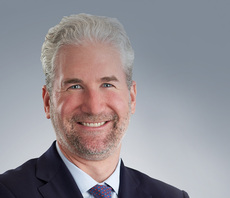Can you give a brief overview of your strategy in terms of what you are trying to achieve for investors, your investment process and the make-up of the investment team?
Alternatives are increasingly in focus for institutional and high net worth investors and an important growth area for AB. We’re committed to building a diverse alternatives platform by expanding our capabilities and attracting top industry talent. Alternatives generally comprise 8% to 10% of our overall assets.
Within alternatives, we have focused on private credit solutions, which account for $45 billion of our AUM. Over the last decade, private credit has evolved from a niche asset class into what we consider an integral component of a diversified investment portfolio. AB’s suite of private credit strategies, which spans lending to middle market corporations, US and European real estate properties, consumers and small businesses, complements our $284 billion public fixed income platform. Experienced investment teams with institutional-caliber pedigrees and established track records are based across the US and Europe.
How would your strategy work in an investor’s portfolio?
A private credit allocation can play three important roles in an investment portfolio: it increases income potential, diversifies broad public market exposure and can reduce overall volatility.
We seek to achieve this by spreading capital across three independent investment teams. One is focused exclusively on corporate direct lending to private equity backed companies and private equity funds. Another invests in the commercial real estate market, with separate strategies dedicated to the US and Europe. The third focuses on consumer-oriented specialty finance and hard asset lending, including aviation assets and debt and equity in power projects.
We consider all three essential components of a diversified allocation rather than an “either/or” proposition. By allocating across all three, we believe investors can improve current income reduce risk. We can invest with a variety of vehicles, including open-end and closed-end funds, both drawdown and perpetual.
Can you identify a couple of key investment opportunities for your fund you are playing at the moment in the portfolio? This could be a stock, sector or thematic level.
Average new-issue yields in corporate direct lending strategies have continued to benefit from elevated base rates, slightly offset more recently with tighter spreads. Base rates and asset yields are likely to remain above averages from recent years, and higher asset yields result in higher return potential.
At AB Private Credit Investors, our $18.6 billion






